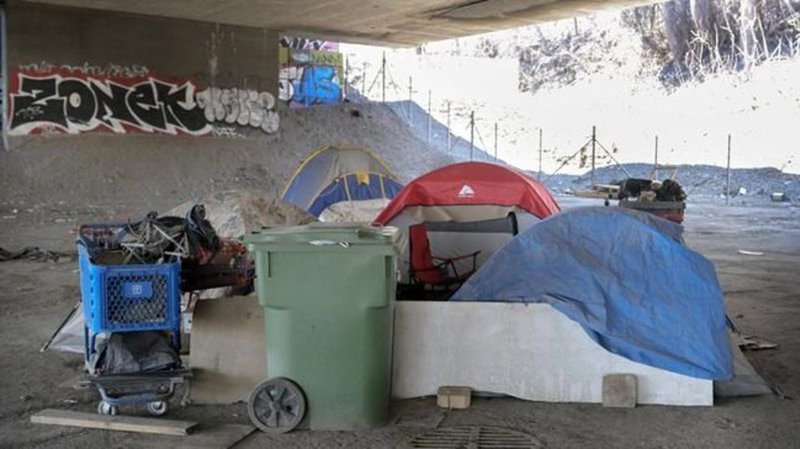
Quebec judge grants injunction halting eviction of homeless camp living under highway
MONTREAL — Quebec’s Superior Court has granted a temporary 10-day injunction to halt the dismantling and displacement of a long-standing homeless encampment located under a major Montreal highway.
In her Tuesday ruling, Justice Chantal Masse ordered the Quebec Transport Ministry — which owns the property below the city’s Ville-Marie expressway — to cease preparatory work that would disrupt the encampment and the small community of people that have taken shelter there.
Masse also ordered the ministry to “refrain from having any contact with the people living in the encampment.”
The province must also work with the Mobile Legal Clinic, a local group that advocates for people experiencing homelessness and filed the injunction application in March.
